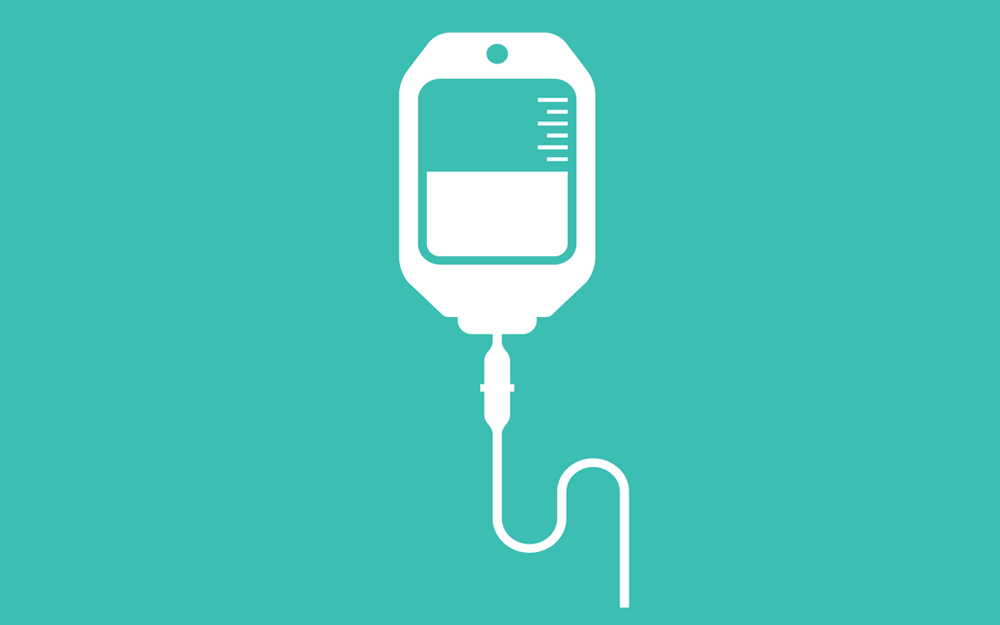A New Medication for Weight Loss
Date
September 30, 2021
Credits

Date
September 30, 2021
Credits
Medical providers featured in this article
In Brief
{{cta-block}}

If you've ever tried to lose weight and failed, you're in good company. Nearly three-quarters of Americans are overweight or obese, according to the Centers for Disease Control and Prevention, and it's not from a lack of trying to shed pounds.
The human body has a built-in regulatory system to maintain a certain set point. So while your weight may fluctuate temporarily, it's designed to return to its highest weight.
"When your body has a higher energy storage set point than necessary for optimal functioning, you're overweight," says Dr. Scott Cunneen, a bariatric surgeon at Cedars-Sinai. "Being overweight is a gateway disease that leads to more than 60 illnesses, including the nation's top killers, such as heart disease, cancer, diabetes and complications from COVID-19."
Unfortunately, there aren't many safe and effective drugs for chronic weight management, and those that do exist produce marginal benefits with troubling side effects. Some of these drugs are so dangerous, the Food and Drug Administration (FDA) pulled them off the market. But that tide changed in June with the approval of semaglutide (Wegovy). The under-the-skin injection is the first weight loss drug the FDA has approved for chronic weight management since 2014 and it produces twice the rate of weight loss as other approved medications with fewer side effects.
We asked Dr. Cunneen for the skinny on Wegovy—and weight loss in general.
"Everyone should start with diet and exercise. But for people who are overweight, lifestyle changes may not be enough to move the needle on the scale."
How does Wegovy work?
Dr. Scott Cunneen: Wegovy mimics a hormone our bodies naturally produce called glucagon-like peptide-1 (GLP-1). GLP-1 prompts the body to produce more insulin after eating. That's how it regulates appetite, by sending signals to the brain that say, "I'm full."
Over time, that mechanism helps readjusts your set point so you're able to eat less food and lose weight without feeling hungry. But semaglutide is not a new medication. In fact, the same active ingredient, GLP-1, has been on the market since 2017 for the treatment of Type 2 diabetes at a dose of 0.5 to 1 mg per week. In June, the FDA approved a higher dose of semaglutide, 2.4 mg weekly, specifically for weight loss.
Unlike other medications, which are delivered orally in pill form, Wegovy is an under-the-skin injection that requires you to inject a tiny shot (like a pinprick) into your leg or stomach once each week. The initial dose is 0.25 milligrams, but by the time you reach month five, you'll be receiving the full 2.4 mg dose of the medication.
OK, but how much weight do you really lose?
SC: About 15% of your body weight. In a 68-week double-blind trial of nearly 2,000 obese adults who did not have diabetes, 2.4 mg of semaglutide weekly—in addition to adopting a healthy diet and exercising—produced a 15% to 20% loss of body weight for most patients (compared to the 2.4% among patients who received placebo, or inactive, injections).
Most other weight loss drugs result in about a 5% loss of body weight. So, if you weigh 200 pounds, taking 2.4 mg of Wegovy weekly is likely to result in a 25- to 30-pound weight loss compared to a 10-pound loss for other weight loss medications that target appetite suppression, such as bupropion-naltrexone (Contrave) and phentermine-topiramate (Qsymia).
Do you still have to diet and exercise?
SC: Yes. Everyone should start with diet and exercise. But for people who are overweight, lifestyle changes may not be enough to move the needle on the scale. When overweight people eat less, their metabolisms slow down so they can maintain their set point weight.
Who is a candidate for Wegovy?
SC: The FDA approved Wegovy, in addition to dietary changes and increased activity, for people who fall into one of two categories:
- Adults who have a BMI of 30 or higher.
- Adults who have a BMI of 27, plus one weight-related health condition, such as high blood pressure, high cholesterol and Type 2 diabetes.
More than 70% of Americans fall into one of those two categories. Wegovy offers an exciting option to people who don't need (or desire) extreme therapies like bariatric surgery, but who aren't getting sufficient results through diet and exercise alone.
Who should NOT try Wegovy?
SC: You should not take semaglutide if you or anyone in your family has had a rare type of thyroid cancer called medullary thyroid carcinoma (MTC), if you have an endocrine disorder called multiple endocrine neoplasia syndrome type 2 (MEN 2) or if you are pregnant or breastfeeding.
Wegovy also comes with warnings for people who have the following conditions:
- Pancreatitis (inflammation of the pancreas)
- Gallbladder issues (including gallstones)
- Low blood sugar
- Kidney disease
- Diabetic retinopathy (damage to the retina)
- Increased heart rate
- Depression, mood disturbances and suicidal thinking
What are the side effects of Wegovy?
SC: Overweight and obesity is chronic disease, so medication for weight loss must be safe. Like many weight loss drugs, Wegovy can lead to gastrointestinal side effects. Common complaints include gas, bloating, indigestion, nausea, diarrhea, constipation and vomiting. That's one reason why doctors start patients at a low dose and work up to 2.4 mg weekly over four months. Other side effects may include headaches, dizziness and low blood sugar, particularly among people who have Type 2 diabetes.
How much does Wegovy cost?
SC: Unfortunately, Wegovy isn't yet covered under most insurance plans, including Medicare. So for most patients, the standard out-of-pocket cost is about $1,400 per month. Over time, Medicare and private insurance plans are likely to cover the cost of Wegovy since overweight and obesity can worsen health conditions ranging from joint problems to heart disease. When that happens, people who have a PPO plan may be able to get Wegovy for as little as $25 per month. In the meantime, drug companies know there's a cost barrier for patients, and many of them have coupons and assistance programs available through their websites.
By treating the weight, we not only prevent disease, but we also reduce the social stigma and reduced quality of life that often accompanies overweight and obesity. We're working on generating data to show that even though it sounds expensive up front, it's cheaper to take Wegovy each week than face the medical complications of obesity. Many patients struggle to lose weight, and unfortunately diet and exercise alone may not produce the results they need. In those cases, Wegovy may be the nudge their bodies need to create a new, healthier "set point."





